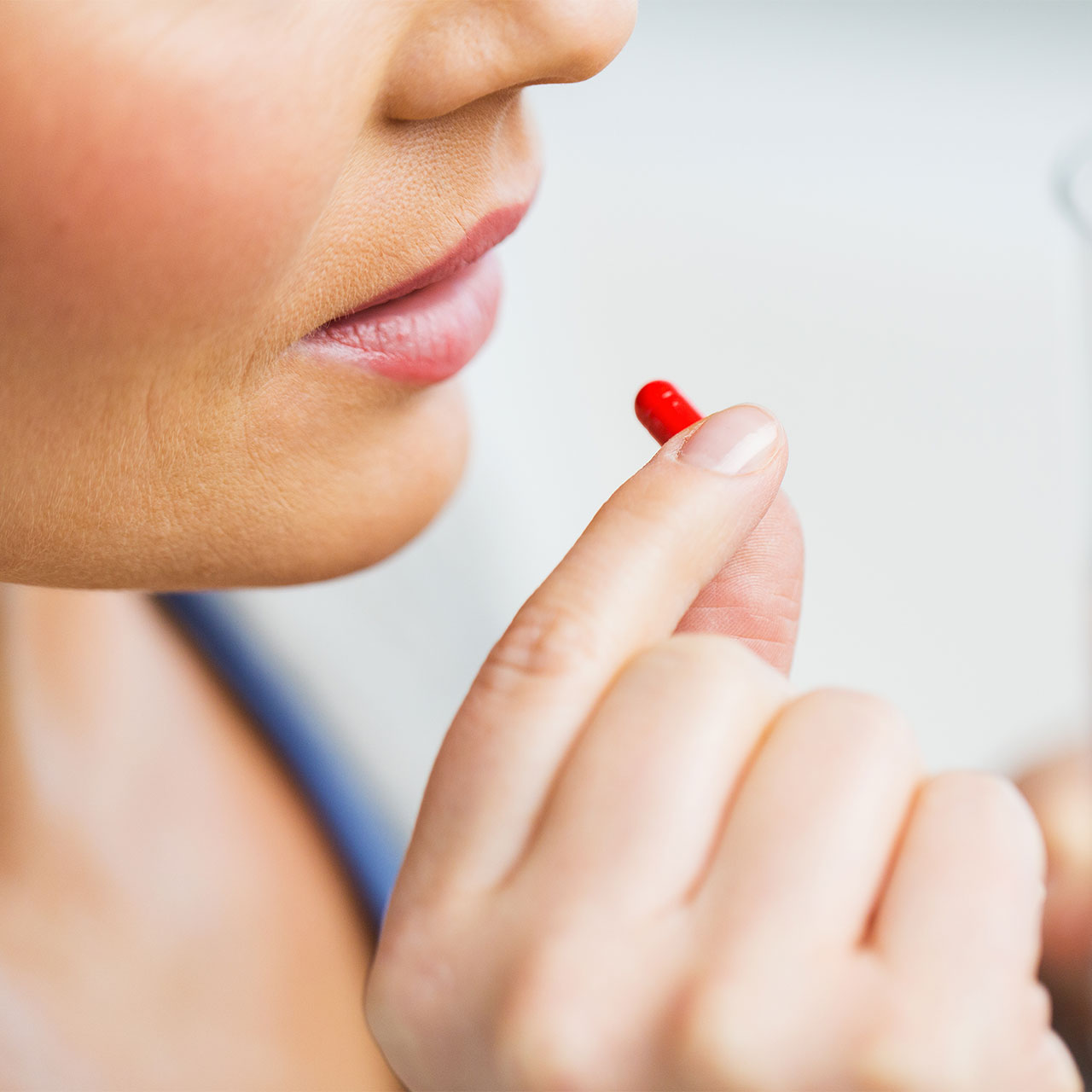
1. Fat Burners
If you want to lose weight, a simple fat burning supplement could seem like a miracle—but if it sounds too good to be true, that's probably because it is. According to Dr. Lahey, fat burners are one of the most commonly misused supplements. "Most manufacturers load fat burners with caffeine, which causes anxiety and jitters and can even lead to heart complications," he warns. And while these products might seem effective in the short term, those stimulants will ultimately do more harm than good. All in all, fat burners fail to directly "burn fat" and usually only offer temporary energy boosts. They're not a good choice for sustainable weight loss.
For long-term results, Dr. Lahey advises sticking to a nutritious diet that includes plenty of protein and fiber. "A healthy diet and daily workouts are enough to increase your metabolism," he says, emphasizing that a balanced approach is more effective than relying on supplements to shed pounds. Got it!
2. Mass Gainers
While many people hit the gym to shed pounds, a lot of folks are looking to buff up and gain muscles. Like weight loss, there are plenty of supplements on the market promising to help with these efforts. However, Dr. Lahey suggests steering clear of mass gainers. "Most of these powders contain sugars and harmful fatty acids, leading to gains in weight but not muscle mass," he tells us. While mass gainers may lead to overall weight increase, the added calories often come from low-quality sources, which can result in fat gain rather than the desired lean muscle growth.
Dr. Lahey recommends working natural protein sources into your diet instead. "Choose sources of protein that are more natural; break away from processed meats, go for eggs or lean meats, and switch to whole foods like quinoa and beans," he says. There are plenty of fantastic, high-protein foods to choose from!
3. BCAAs (Branched-Chain Amino Acids)
Regularly working your muscles in the gym makes recover crucial. Branched-chain amino acids, or BCAAs, are popular as a recovery supplement, but Dr. Lahey says they're likely not necessary. "BCAAs are commonly believed to aid in muscle recovery, however, if you are taking the proper amounts of protein, the supplement is useless," he says. If you're consuming enough protein, adding a BCAA supplement to the mix will provide little benefits.
Instead, Dr. Lahey says, focus on whole-food protein sources like chicken, fish, and legumes, which naturally provide the amino acids your muscles need to recover. "A healthy serving of whole food will suffice," he says. Plus, they're delicious!
4. Detox Supplements
News flash: Your body knows how to detox itself—no detox supplements necessary. Whether they're juice cleanses, skinny teas, or detox pills, there's a wide range of supplements promising to cleanse your body. And the real catch is that most of them aren't effective, and may even be harmful. "Juice cleanses and other trendy products promise to ‘purify’ the body, but it is in fact our liver and kidneys that do the work," Dr. Lahey says. They often lack scientific backing and, in some cases, could even damage your body.
To ensure your body detoxifies itself optimally, Dr. Lahey recommends avoiding alcohol and sugary drinks and incorporating high-fiber foods, fruits, and vegetables into your diet to support natural detoxification. "Our liver and kidneys already handle detoxification," he says. Noted!
Ultimately, it's always important to be critical of the supplements on shelves; always speak to your doctor before adding one to your routine.
READ MORE: Doctors Say High Doses Of These Potentially Dangerous Supplements Could Damage Your Liver: Turmeric & More


